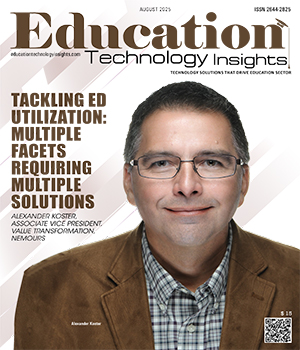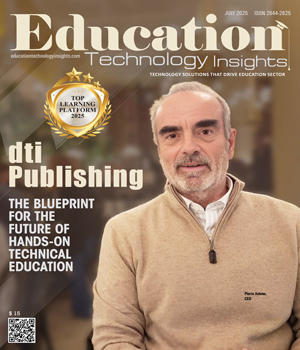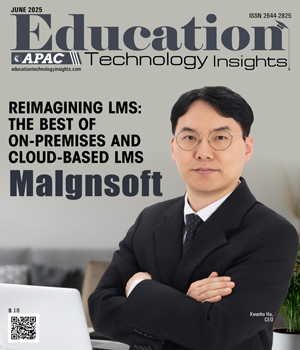THANK YOU FOR SUBSCRIBING
Be first to read the latest tech news, Industry Leader's Insights, and CIO interviews of medium and large enterprises exclusively from Education Technology Insights
Hybrid Learning Methodology-Overcoming Disruption
Claude Toland, Director of Education, Universal Technical Institute
 Claude Toland, Director of Education, Universal Technical Institute
Claude Toland, Director of Education, Universal Technical InstituteThe pandemic brought about many changes in the learning processes at colleges and universities. Selingo and Clark (2021) provided insight to the argument that the delivery methods of higher education needed changing. There has never been a more disruptive time in higher education than when the pandemic hit in 2020. Selingo and Clark tell us that Deloitte’s Center for Higher Education Excellence and the Strada Education Network joined in an information gathering discussions with higher education leaders to identify how organizations might move forward in better ways to serve students in higher education during and after the pandemic.
There are questions that came from these discussions. The biggest and most important question to answer is – If colleges and universities move more to hybrid methodologies, will the college and university administration and faculty adapt to this change? Another question – will the administration and leadership support the change with the required budget? The last question is – will the students adapt to the new ways of learning? There are beliefs from higher education leaders is yes to all the questions.
"The biggest and most important question to answer is – If colleges and universities move more to hybrid methodologies, will the college and university administration and faculty adapt to this change?"
We ask the question, what is the hybrid learning methodology. Some believe it is only online and there are those that believe it is only remote. To be considered hybrid, there must be face to face hours required and there will also be online requirements for the students. The online learning consists of potential video lectures, interactive online skills challenges, and threaded discussions. In the Hybrid format, teachers can use asynchronous teaching to “supplement synchronous face-to-face instruction” (Boyarsky, 2020). Boyarsky continues to tell us that colleges are using the Hybrid methodology because of its flexibility. Today’s students like the flexibility of having the ability to complete some work at home on their own time in an asynchronous method.
To overcome the disruption and disarray caused by the 2020 pandemic, college administrators and education leaders had to come together to identify a plan to shift the delivery of face-to-face education. There was a belief that this is the time to allow technology to be the platform for improving or redefining how education is delivered in the post COVID environment.
Some lessons learned from the disruptive pandemic are (1) it is okay to continually redesign or restructure how we deliver education (2) share thoughts and ideas with other educators, don’t get stuck in a rut, (3) ensure there is a balance in the online assignments and the face-to-face assignments and (4) if there is a shift to hybrid, ensure there is support for students that are not familiar with the tools used for online such as Blackboard or Google Classroom. A frustrated student with no support leads to a failing student. Boyarsky (2020) leaves us with this message, “a successful hybrid course is only as strong as the relationship between the two halves.”
Read Also
Reframing Academic Integrity in an AI-World
Step into The Future: How Inspired's Metaverse is Transforming Learning
Nurturing our Future Learners - The Spark that ignites Creativity
Balancing Human Connection and Technology for Impact
Applied Microcredentials for Opportune Upskilling in Aquaculture
Empowering Teachers to Use AI with Discernment

I agree We use cookies on this website to enhance your user experience. By clicking any link on this page you are giving your consent for us to set cookies. More info






















